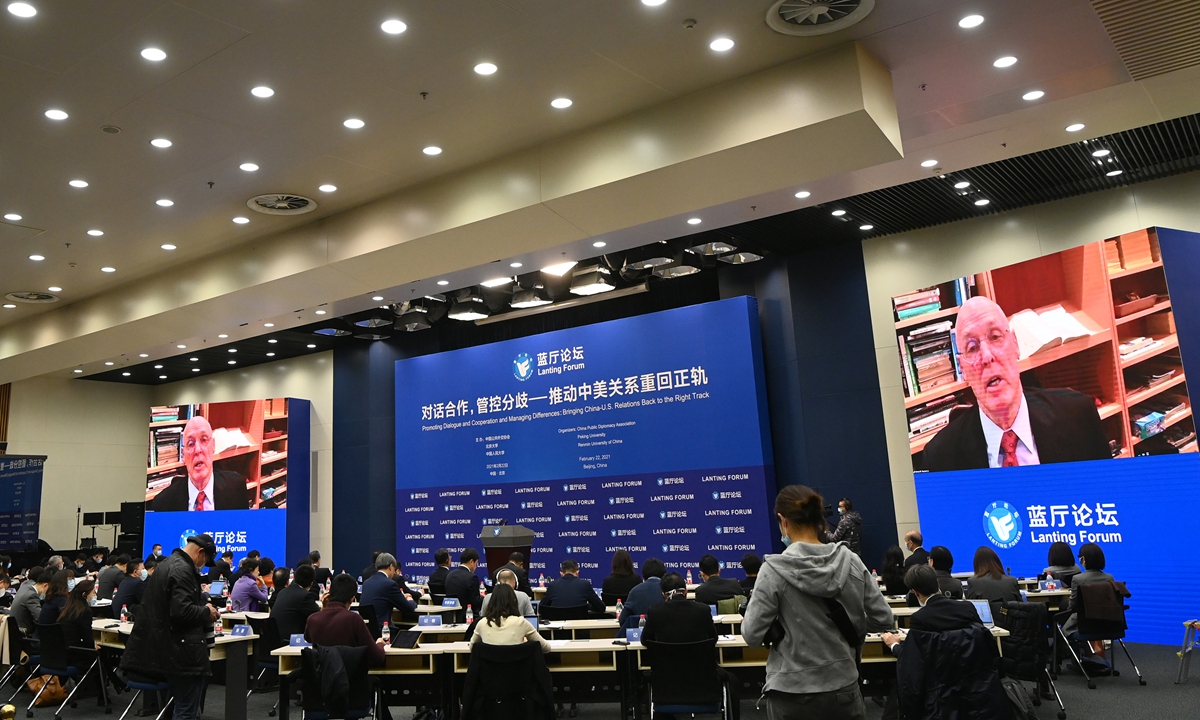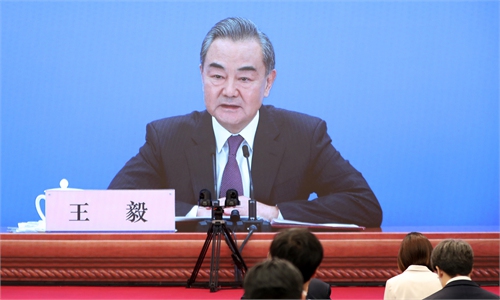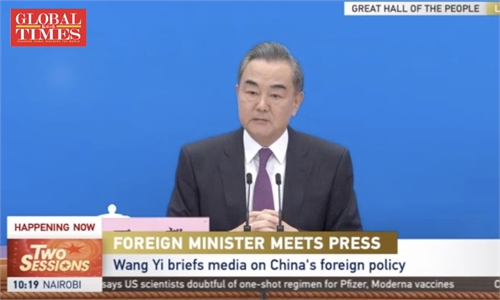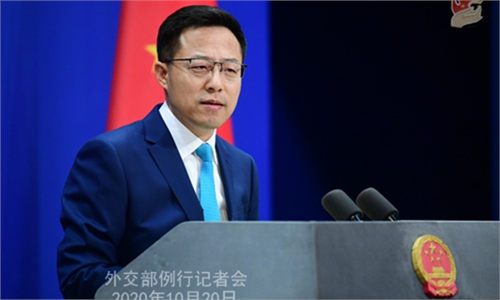US scholars, former officials offer suggestions in response to China’s hopes of rebuilding bilateral ties

Henry Paulson, former US treasury secretary, speaks via video link at the forum's opening ceremony. Photo: cnsphoto
China is continually sending messages to the US to rebuild or at least normalize bilateral ties since President Joe Biden took office, and US scholars, former officials and diplomats have also offered suggestions to respond to China's calls, suggesting the two sides should have clear lists for cooperation, dialogue and divergence management.
On Sunday, Chinese State Councilor and Foreign Minister Wang Yi sent the message again at a press conference on the sidelines of the fourth session of the 13th National People's Congress. He said China is ready to work with the US to bring bilateral relations back on the right track.
At the Lanting Forum held by China Public Diplomacy Association, Peking University and the Renmin University of China in Beijing last month, Wang delivered a speech themed "Promoting Dialogue and Cooperation and Managing Differences: Bringing China-US Relations Back to the Right Track."
"COVID-19, climate change and world economic recovery are the three most pressing tasks for the international community. China is ready to coordinate policies and work with the US in these three areas for the good of the whole world," Wang said at the forum.
Many former US senior officials and scholars participated the forum, including former treasury secretary Henry Paulson, former trade representative Carla Hills, former Australian prime minister and president of US think tank the Asia Society Kevin Rudd, and Graham Allison, a senior scholar at the John F. Kennedy School of Government at Harvard University.
These attendees shared their thoughts on how to rebuild ties at the forum, offering many areas for China-US cooperation. Some noted that the obstacles set by the previous Donald Trump administration to block normal people-to-people exchanges should be removed, including visa restrictions against students and normal academic activities, the sanctions against the Confucius Institutes in the US, restrictions against each other's media outlets and a restart to educational exchanges such as the Fulbright Program.
List for cooperation
On fighting COVID-19, US scholars and former officials agreed that China and the US should coordinate on vaccine distribution and strengthen the financing and distribution for developing countries to ensure all countries get enough vaccines. They agreed that China and the US should enhance cooperation on global public health affairs.
Climate change is the issue on which the Biden administration shows a clear intent to cooperate. US scholars and former politicians noted that the two countries should guide capital flow for the private sectors, reduce carbon emissions and support green development, as well as joint investments to support technology to mitigate climate change, as well as promoting the use of clean technology.
On global economic recovery and WTO reform, some US attendees suggested that China and the US should drive the recovery together, strengthen the rulemaking for digital trade, technology and intellectual property rights, and renew and improve the international trade system.
Issues requiring dialogue
Compared with the list for cooperation, the list for dialogue proposed by US attendees has more elements. The experts suggested that China and the US should continue trade talks and comprehensively implement the Phase 1 trade deal that China has signed with the previous administration. They said that the two sides should start new negotiations, especially on lowering tariffs, to reduce uncertainty.
Henry Paulson suggested that "the two countries can reestablish a Strategic Economic Dialogue to address major long term macroeconomic challenges, while making progress on the more immediate issues. The key is to keep the talks small in size and scope, high level, and to remain laser focused on achieving real and meaningful results."
US attendees also said on topics like cyber security, arms control and denuclearization, there should also be bilateral dialogue. Some suggested that the US should seek a solution with Chinese IT giant Huawei to prevent the abuse of the "national security" definition and avoid the behavior of "sentencing all Chinese firms with advanced technology to death." It should allow Huawei to provide 5G technology and products to the US under the supervision of the US government to offer Huawei a chance to prove it is a trustworthy firm that can serve US demands.
Crisis management
US attendees said that China and the US should build a crisis management mechanism and hard limits for the behaviors of security policies should be set. Both sides should be more forward-looking, reduce the possibility of miscalculation and should ensure the divergences will not escalate into conflicts. Some agreed that the US should strictly abide by the one-China principle to end provocative activities on the Taiwan question, which frequently happened during the Trump administration.



